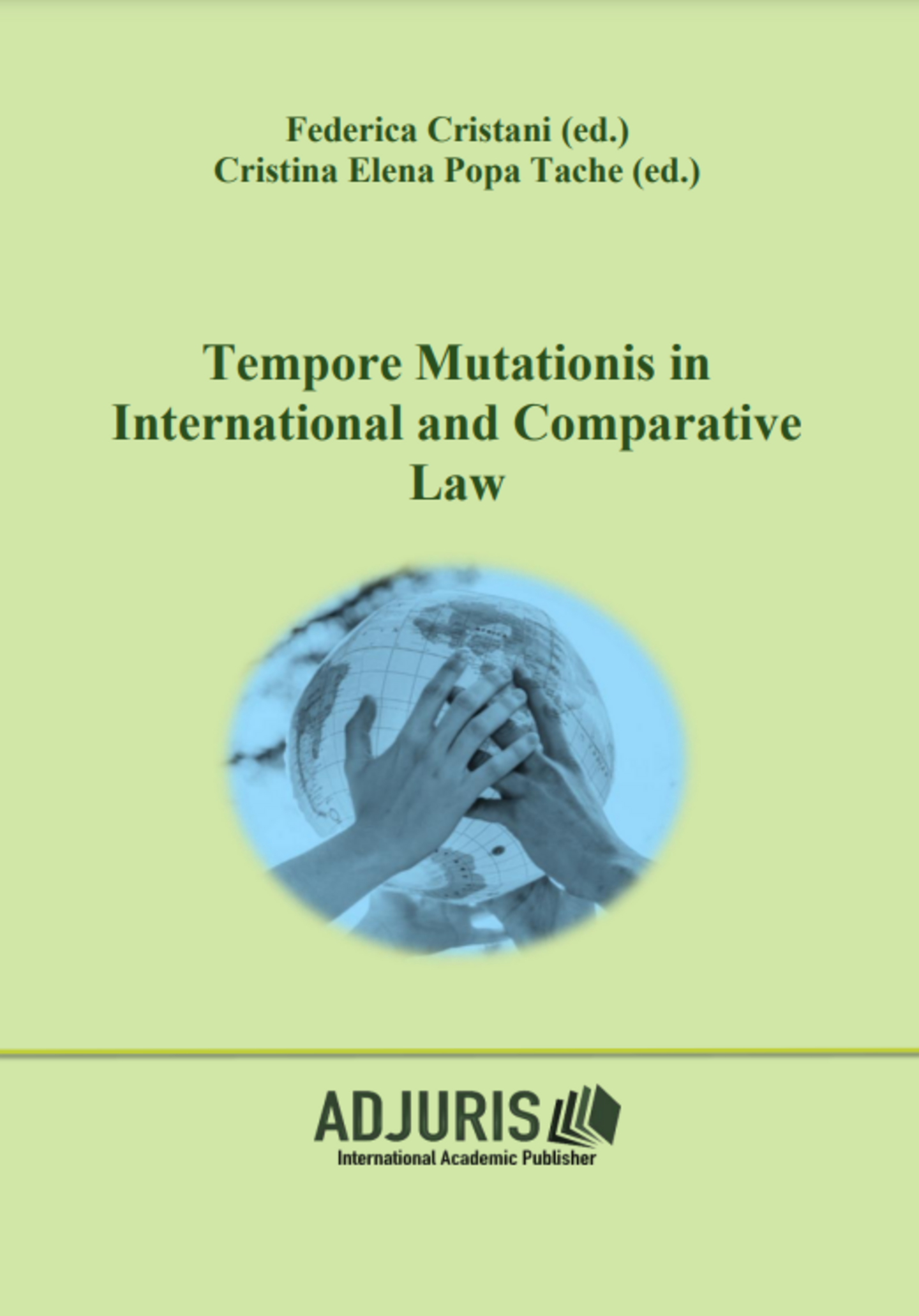Tempore Mutationis in International and Comparative Law

The head of the Center of International Law, Federica Cristani, co-edited the conference on recent developments and prospects for development in the field of comparative and international law. It is a compilation of contributions to the 3rd Conference on Comparative and International Law.
The scientific studies included in this volume are grouped into three chapters:
1) The Season of Changes for International and European Law. The papers in this chapter refer to: the possibility of law of all forms of life in the context of transdisciplinary mutations in international law; investment screening mechanisms in times of Covid-19: national approaches; the need for international legislation regarding the use of generative artificial intelligence in education and scientific research; recent judicial resistance again the primacy and authority of EU law by constitutional courts in some member states: a survey of literature; the relationship between EU citizenship and the right to vote; judicial error in European law; digital wallet: economic and legal implications in the digital era; the individual as a subject of public international law and procedural law of reparation.
2) The Limitlessness of Comparative Law. This chapter includes papers on: piercing the corporate veil: lack of legislation, proposals to change an existing law, legislation; suspension of the procedure by the national court that notified ecj for a preliminary ruling, in the context of the recent jurisprudence of the European court of Justice; the right to non-self-incrimination and the false testimony – comparative law aspects; new trends in comparative law: cross-fertilisation; organized crime - aspects of comparative law; comparative analysis of the institute of confiscation with special emphasis on the Republic of North Macedonia; artificial intelligence: civil liability 3.0.
3) Practical Realities in Our Focus. The papers in this chapter refer to: financial mechanisms of the European Union to support of agri-food niche companies of fish farmers and foresters in crises situations; recidivism - cause of overcrowding in prisons in Romania; inheritance rights of the surviving spouse:study of comparative law; analysis of fraud risk regarding the real beneficiary in relation to international sanctions; the taste of sin: Polish sugar tax; social media and legal challenges on data protection in criminal proceedings: international standards and the case of Albania.
This volume is aimed at practitioners, researchers, students and PhD candidates in juridical sciences, who are interested in recent developments and prospects for development in the field of comparative and international law.